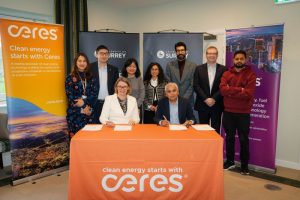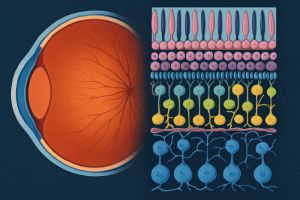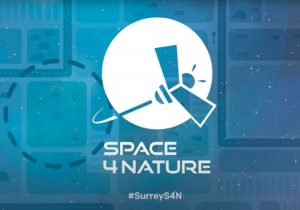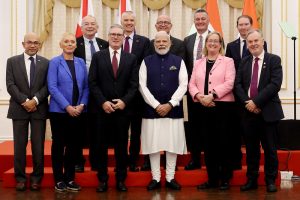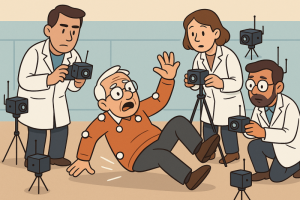A new partnership between the University of Surrey and leading clean energy technology company Ceres aims to speed up the development of next-generation clean power systems and hydrogen production – supporting the UK’s net zero ambitions and helping address a growing skills gap in electrochemical energy technologies.
The collaboration brings together Ceres’ expertise in solid oxide fuel cells (SOFC) and solid oxide electrolysis (SOEC) with Surrey’s research strengths in electrochemical energy systems, digital and multiscale modelling, and advanced materials characterisation. Solid oxide electrolysis allows for highly efficient hydrogen production using electricity and heat, while solid oxide fuel cells can generate low carbon power for applications ranging from industrial processes to data centres.
Under the partnership, the teams will focus on improving the efficiency, durability and performance of these technologies, using advanced modelling and mechanistic insights to help translate fundamental research into real-world systems more quickly. Together, they will pursue joint research projects, collaborative funding bids and new training and placement opportunities for students.
Professor Qiong Cai, Professor in Sustainable Energy and Materials at the University of Surrey, and academic co-lead, said:
“Solid oxide electrolysis and fuel cells have huge potential to underpin the UK’s future energy systems, from large-scale hydrogen production to low-carbon power for industry. But real progress depends on improving efficiency, durability and performance so these systems can operate reliably in the real world. This partnership gives us the opportunity to tackle those challenges head-on, combining fundamental science with a clear route to application.”
Professor Jin Xuan, Associate Dean of Research and Innovation for the Faculty of Engineering and Physical Sciences, who is also a co-lead at Surrey, said:
“There is a growing skills gap in hydrogen and electrochemical energy technologies, at a time when demand for these capabilities is increasing rapidly. Working together with Ceres, we aim to help train the next generation of engineers and scientists in these fields through placements and hands-on research, ensuring the UK has the expertise it needs to support a net zero economy.”
The partnership is outlined by a three-year Heads of Terms agreement and will see the teams work together to develop a pipeline of joint research projects and funding bids.
A symbolic signing ceremony, which took place at the University of Surrey on 14 January 2026, formally marked the start of the collaboration and provided an opportunity for both parties to set out priorities for the work ahead.
Dr Subhasish Mukerjee is Chief Scientific Officer at Ceres and was recently appointed a Visiting Professor within Surrey’s School of Chemistry and Chemical Engineering. He said:
“We are delighted to expand our collaboration with the University of Surrey across fundamental electrochemistry research, modelling and digitalisation, and strategic testing to develop the next generation of clean energy technology. This collaboration strengthens our leadership in the solid oxide field and supports the UK’s drive toward achieving its net zero targets.”
.
.
.
.
.
.
.



